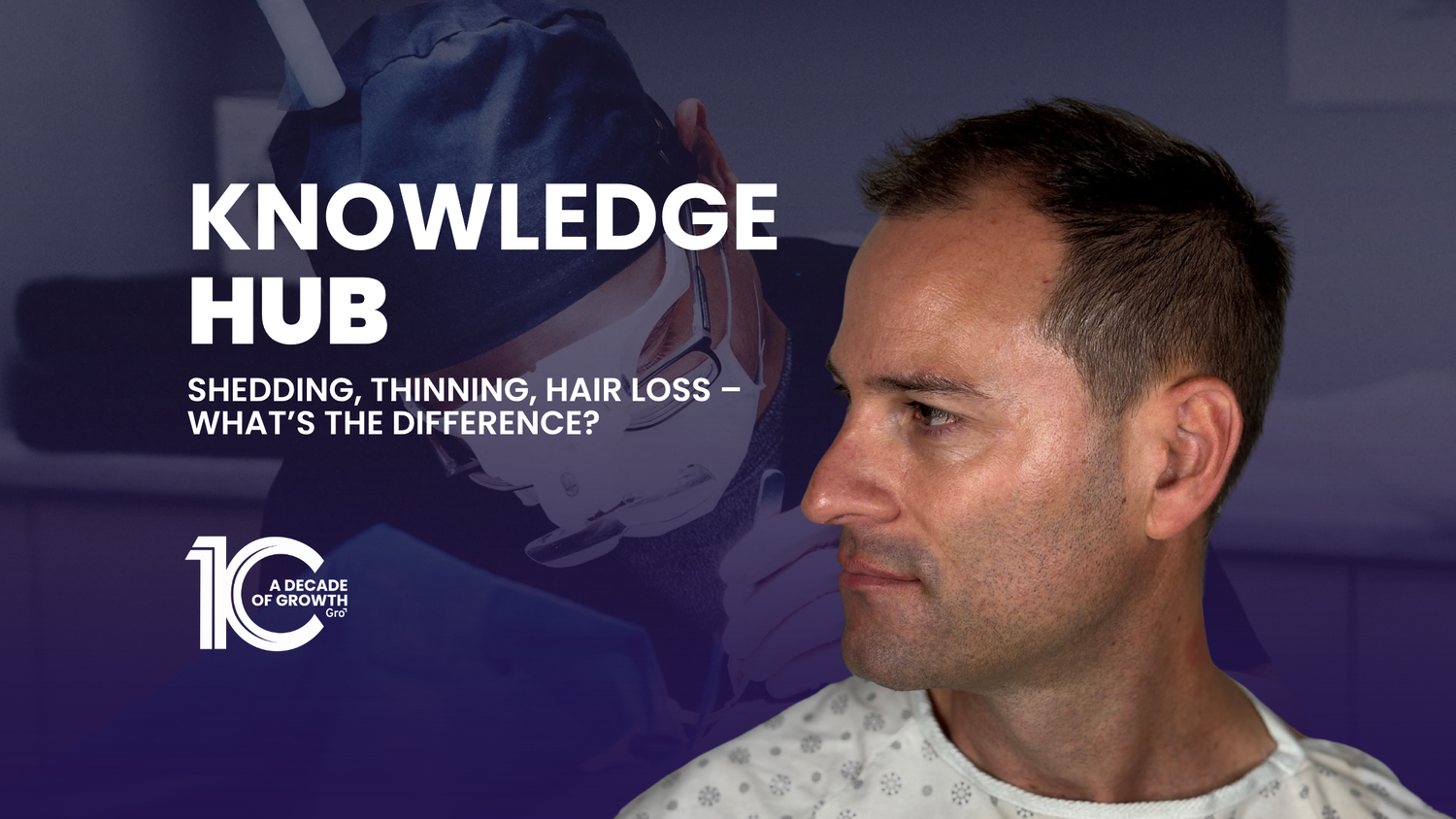Noticing changes in your hair can be unsettling. You might see more hair on your brush or a wider part in the mirror. But not all hair changes are the same — shedding, thinning, and hair loss are different, and understanding those differences can help you respond appropriately.
Is Hair Shedding or Thinning the Same as Hair Loss?
These terms are often used interchangeably, but they mean different things:
- Shedding: It’s normal to lose around 50–100 hairs a day as part of the natural hair growth cycle. Temporary increases, often triggered by stress, illness, or nutrient deficiency, are referred to as telogen effluvium.
- Thinning: A general reduction in hair density over time. It’s common with age and may not always progress to hair loss.
- Hair loss: A more persistent or widespread issue where hair doesn’t regrow at the same rate or at all. This may be due to genetic, autoimmune, or mechanical factors.
Common Causes of Hair Loss
Hair loss can be due to multiple causes, including:
- Androgenic alopecia: Also known as pattern hair loss, it’s influenced by a hormone called DHT.
- Traction alopecia: Caused by prolonged tension from tight hairstyles.
- Alopecia areata: An autoimmune condition where the body attacks hair follicles.
Is Thinning Hair Always a Concern?
Not necessarily. Hair texture and volume change with age, hormones, and lifestyle. Postpartum changes, menopause, stress, or rapid dieting can all cause temporary shedding. If shedding continues or worsens, it's worth getting it checked.
Is Your Hair Thin or Thinning?
Fine hair refers to strand thickness, not quantity. You may have a full head of fine hair — which is completely normal. Thinning, on the other hand, is a reduction in density. Monitoring scalp visibility or new growth patterns can help you tell the difference.
Can Thinning Hair Grow Back?
In some cases, yes. The best approach is to create healthy conditions for hair to thrive:
- Use quality hair products for scalp care
- Maintain a nutrient-rich diet and consider a hair supplement
- Get enough rest and manage stress
- Stop smoking, if applicable
It's also helpful to consult with an advisor for an individualised recommendation.
Need Support?
If you’re unsure whether you’re experiencing hair loss or just normal shedding, the best step is to speak with a qualified health professional. They can assess your hair, explore potential causes, and explain what treatment options might be suitable for you.
Disclaimer: This article is for general information only and is not a substitute for medical advice. Individual circumstances vary. Always consult a registered health practitioner before starting any treatment.
Gro Clinics Near You












